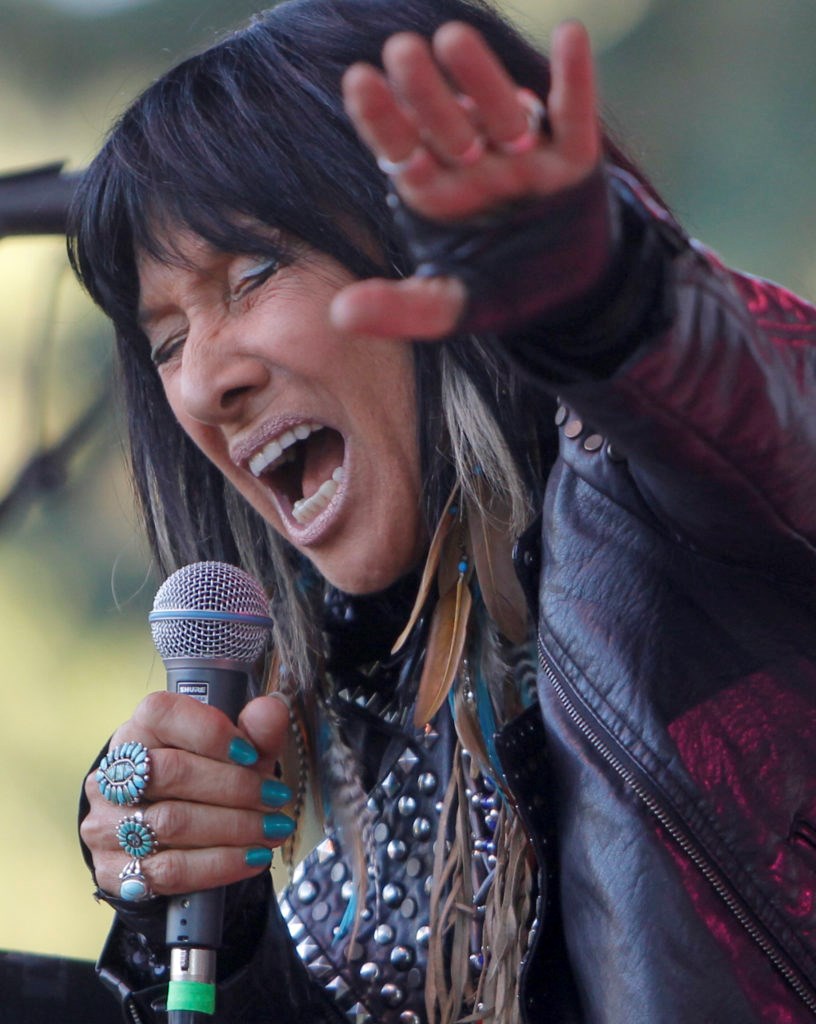Tim Johnson feels strongly that “any and all” Juno awards given to Buffy Sainte-Marie intended to recognize Canadian and Indigenous musicians, should be rescinded.
Johnson, a Niagara-on-the-Lake resident, has a long list of accreditations, including his role as a museum professional who advanced Indigenous music programming and related exhibits at the Smithsonian. He has been a Juno awards judge for the Indigenous arts category.
Closer to home, Johnson was instrumental in the development of the Landscape of Nations in Queenston, and served on the committee for Voices of Freedom Park in NOTL.
He is also creator and producer of the Indigenous Niagara Living Museum Tour, and executive producer of the multiple award-winning documentary RUMBLE: The Indians Who Rocked The World.
In a letter to Allan Reid, president and CEO of the Canadian Academy of Recording Arts and Sciences, the organization responsible for Juno awards, he reminds Reid that the album Rumble, which Johnson produced along with Derek Miller (both from Six Nations of the Grand River), was nominated for the Indigenous Music Album of the Year Juno Award in 2016, alongside Sainte-Marie and others. Sainte-Marie’s Power in the Blood won the award, which is intended to recognize Indigenous artists.
“This now stands as a terrible travesty and injustice that demands rectification, particularly since Buffy Sainte-Marie is neither Indigenous nor Canadian.”
Johnson reached out to The Local to explain the context of his letter. He is referring to a very detailed report by CBC, which includes extensive research and documentation that says Sainte-Marie is not Indigenous, and was born in Massachusetts, not in Saskatchewan, as she has claimed.
The CBC report said it located her birth certificate showing her place of birth, listing her parents as white, and that it was used in other documentation, including her marriage certificate and a life insurance policy.
Sainte-Marie responded before the Fifth Estate aired, anticipating what was coming. She learned of her Indigenous ancestry through her mother, who was part Mi’kmaq, she said, and she was adopted by an Indigenous family as a young adult — a family who continues to support her.
She called herself “a proud member of the Native community with deep roots in Canada,” and said she struggled to learn about who she is, and to learn more about her background. But, she added, “I still don’t know where I’m from or who my birth parents were, and I will never know.”
Artists who receive Juno awards, said Johnson, gain increased recognition, and opportunities that boost their fame and income, and can receive contracts from Canada’s leading performing arts centres as a result.
He considers CBC’s Fifth Estate’s extensive investigation into Sainte-Marie’s identity “thorough, compelling, and resolute.”
The investigation reveals “a concocted Indigenous identity that was used as the basis for creating a career persona and establishing relations with actual Indigenous people in ways that reinforced her fiction while supporting a livelihood. Deception of this scale and duration over some 60-plus years has caused incalculable reputational and financial damage to authentic Indigenous musicians. About this there can be no doubt,” Johnson said in his letter.
To The Local, he said, “So many of us working in the Indigenous world accepted her identity, over so many years. This information is pretty significant, and there are a lot of different complexities around it.”
We know now, he added, “that she was raised by her biological family to adulthood. She started spinning a number of misleading ideas about her Indigenous heritage years ago.”
As for her adoption into an Indigenous family as an adult, after years of creating a false identity for herself, he said, “You have to wonder what she was telling people, spinning stories about being born in Saskatchewan.”
“She is not the first pretendian (a term for those who claim Indigenous heritage that doesn’t stand up to scrutiny) that CBC has exposed,” said Johnson.
“And kudos to CBC. It has done a systematic job of revealing these people. We still have over 600 Indigenous nations in Canada, with Indigenous populations. But we know there are pretendians out there and we need CBC to continue their good work.”
Indigenous people are harmed by those who adopt a false heritage, Johnson continues, “particularly in this day and age when we talk about Truth and Reconciliation, and the damage that was caused. We need an organization to audit these things, and to ensure
Indigenous people are protected.”
In the case of Sainte-Marie, it’s not just those nominated for awards that were given to her who are victims, “but her fan base among Indigenous people, they themselves are victims as well.”
